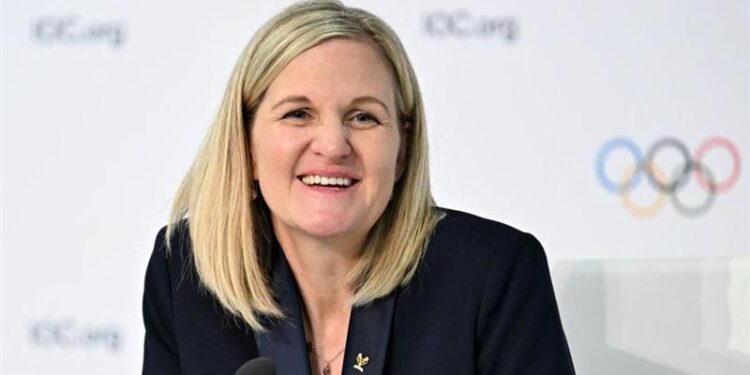On Thursday, Kirsty Coventry, a two-time Olympic gold medalist and Zimbabwe’s current minister of sports became the first woman and the first African to be elected president of the International Olympic Committee (IOC).
Her decisive victory securing 49 of the 97 available votes in the first round—marked a historic shift for an institution that has, for much of its 131-year history, been led by European men.
The election, held in Costa Navarino, Greece, saw Coventry triumph over six other candidates, including IOC Vice President Juan Antonio Samaranch, who finished second with 28 votes.
“It is a signal that we are truly global,” Coventry, 41, said in her acceptance speech. “The Olympic movement belongs to everyone, and I am honored to lead it into the future.”
Coventry, who will serve an eight-year term, succeeds Thomas Bach, the German lawyer and former Olympic fencer who has led the IOC since 2013. She will officially take office on June 23 Olympic Day ushering in a new era for the organization.
Some context on her athletic career
Born in Harare, Zimbabwe, Coventry rose to prominence as one of Africa’s most successful Olympians. She attended Auburn University in Alabama, where she competed for the school’s swim team, helping the Tigers secure multiple NCAA Championships.
- Her breakthrough on the international stage came at the 2004 Athens Olympics, where she won three medals, including gold in the 200-meter backstroke. She repeated her triumph in Beijing four years later, cementing her status as Africa’s most decorated Olympian. Over the course of her career, she won seven Olympic medals, held multiple world records, and earned the nickname “Zimbabwe’s Golden Girl.”
- Her achievements made her a national hero. In 2008, then-President Robert Mugabe awarded her $100,000 in recognition of her Olympic success. Rather than keep the money, Coventry donated it to charity.
After competing in five Olympic Games, she retired from professional swimming in 2016.
A career leap from athlete to administrator
Even before retiring, Coventry had begun transitioning into sports administration. She was elected to the IOC Athletes’ Commission in 2012 and later chaired the body, which represents Olympians worldwide. In 2018, she joined Zimbabwe’s government as Minister of Youth, Sport, Arts, and Recreation, a role she has held since.
During her tenure, she has been credited with revitalizing Zimbabwe’s sporting infrastructure, though she has also faced criticism for failing to secure better funding for athletes.
Her rise within the IOC has been steady. In 2023, she joined the organization’s executive board, and when Bach’s term neared its end, she emerged as one of the leading candidates to succeed him.
What to know
Coventry assumes leadership at a pivotal moment for the Olympic movement. She will oversee preparations for the 2028 Los Angeles Games and lead the selection process for the 2036 Summer Olympics. She will also be tasked with ensuring the financial stability of the IOC, particularly as cities become more reluctant to host the Games due to their enormous costs.
- Additionally, she will likely have to navigate complex geopolitical challenges. When asked about the prospect of meeting with global leaders, including U.S. President Donald Trump, to discuss the Los Angeles Games, she said:
“I have been dealing with—let’s say—difficult men in high positions since I was 20 years old. What I have learned is that communication will be key.”
Her election is also a victory for gender equality within the Olympic movement. Under Bach’s leadership, the IOC has made strides in increasing female representation, both in competitions and within its leadership. Coventry’s presidency establishes that progress.













